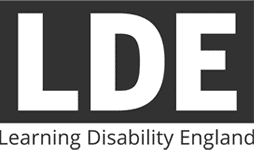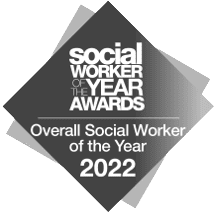Katy Evans – Changing Our Lives Associate
During the Coronavirus pandemic my mind has not been far from the thousands of people who live in care homes. They have arguably got more media coverage than ever before, highlighting the low levels of PPE and devastatingly high death rates. However, what hasn’t been reported is that many care home residents have been in their own version of lockdown for years through chronic under funding, staff shortages and attitudes based around ‘looking after’ rather than enabling people to live full and ordinary lives.
Although very different to those in care homes, as a disabled person, lockdown has reflected parts of my own life too. The positive lessons of lockdown have already been banded around. My hope is this will include a deeper understanding and empathy for disabled people’s lives and the openness to learn and adapt going forward.
In such an emergency situation it was understandable the government implemented lockdown without consulting the public about how this would impact their lives. However, this is a regular experience for many disabled people. Authorities dictate what disabled people’s lives should look like and what is reasonable, often with little meaningful input from the person. Assessments put ordinary life into categories with time slots and a priority ranking. They often conceptualise a life that is far from ordinary to that of many non-disabled people.
At the best of times people would probably describe food shopping as a necessary chore and now it’s become a source of extreme stress. However, when totalling the hours a disabled person can be supported to ‘access the community’ aka have a social life, these pitiful hours often include time for food shopping. Even outside pandemic times I think few people would list their weekly food shop as the highlight of their social life.
When everything has to fit into defined time slots there is often little room for disabled people to be spontaneous which can be further halted by barriers in society. People have accepted they temporarily cannot go to the public places they enjoy but the Papworth Trust (2018) found a staggering three quarters of disabled people have been forced to go home due to lack of access in public spaces. They also highlight only 25% of the London underground is accessible to wheelchair users. Food shortages and the necessity to queue outside shops have removed the spontaneity of ‘popping to the shop’ and made people realise how reliant they are on services and how much their lives are affected by the restrictions which is a reality many disabled people know.
Whilst the public were only being given an hour for daily exercise, people largely had the choice over where, when and how they used this time. Restrictions over care support mean some disabled people have little say over the hours in their day with some disabled people having to go to bed as early as 7pm because that’s the only time they can have support.
Everyone is being forced to face up to their vulnerabilities and fears that shortages could lead to restrictions over the care they may receive if the NHS hits crisis point. Disabled people have been at the sharp end of the cuts to services for a while which has placed further restrictions on our lives. The hidden fights to have our needs met and challenge further restrictions are exhausting, degrading and feel never ending.
These restrictions often lead to isolation and lack of control over people’s lives. You can’t go far without hearing ‘self-isolation’ these days but it’s a concept many disabled people are well versed in. There are multiple reasons why disabled people may be isolated including support for social opportunities seen as a luxury rather than a necessity and the access barriers already mentioned. Being disabled is also more costly; Scope (2019) found disabled people spend approximately an extra £583 per month due to their disability. When it comes to socialising this could include paying for PA’s expenses as well as their own. Inaccessible housing means some disabled people cannot leave their homes easily or are forced to be housebound.
There can be a contradiction in society where disabled people feel invisible when it comes to their needs being met yet also painfully visible in a social context when the desire to just fit in is strong. As well as external barriers, people’s impairments can lead to isolation due to pain and fatigue causing them to cancel social plans. When social media shows everyone going out and having a great time it can further enforce feelings of missing out and isolation. Scope (2017) highlight 85% of young disabled people reported feeling lonely and 26% of non-disabled people surveyed by Sense (2017) said they would avoid having a conversation with a disabled person. In some ways the lockdown has bridged some gaps with social gatherings moving online which many disabled people find more accessible and inclusive. This extends to wider social arenas; The Guardian (2020) reports streaming shows online has enabled one woman to attend a concert for the first time in years. She described this experience: “I was alone in my bedroom but felt part of the audience because everyone else was too. Suddenly, it seems like the abled world I used to inhabit has become accessible to me.”
Although the majority of people understand why lockdown measures have been implemented I think it is easy to overlook many disabled people have been in lockdown for years. It’s uncertain when lockdown will end but it will end at some point. When you go back to your normal lives spare a thought for the thousands of disabled people whom the last few months are representative of their lifetime. When this is over I hope we work together to make environments more accessible but also carry forwards the concept of utilising online platforms so everyone can be an active member of society. I hope this experience gives people empathy and a drive to ensure lockdown measures are lifted for everyone in society…
References
Papworth Trust (2018) http://online.flipbuilder.com/afjd/uvad/mobile/index.html#p=4
Scope (2019) The disability price tag https://www.scope.org.uk/campaigns/extra-costs/disability-price-tag/
Scope (2017) https://www.scope.org.uk/press-releases/nearly-half-of-disabled-people-chronically-lonely
The Guardian (2020) https://www.theguardian.com/world/2020/apr/20/covid-lockdown-opening-up-world-for-people-with-disabilities
Sense (2017) Someone cares if I’m not there” Addressing loneliness in disabled people https://www.sense.org.uk/support-us/campaigns/loneliness/





